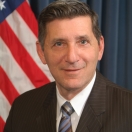
April 20, 2016
Between 3:00 and 6:00 P.M.
UN Headquarters
New York, New York
As prepared for delivery
Good afternoon,
It has been 18 years since the last special session of the UN General Assembly on the World Drug Problem. Since 1998, together, we have made progress in addressing illicit drug use and advancing a more balanced and humane approach to drug policy.
But we still have more to do. This meeting represents a rare opportunity to assess the issue, evaluate our progress, and chart a path forward for how the nations of the world respond to the drug problem.
Illicit substance use remains a problem that ruins countless lives and supports criminal organizations.
Since the last UNGASS meeting, we have had some successes in disrupting trafficking and production networks around the world. This is a critical effort. And while we are encouraged by international cooperation on New Psychoactive Substances, more steps are necessary to address this quickly-changing problem.
In addition, our law enforcement efforts should focus on criminal organizations – not on people with substance use disorders who need treatment and recovery support services.
The United States strongly supports drug policy reform under the framework of the three UN Conventions. Critical reforms, such as providing better access to treatment and less punitive approaches in our justice systems, are explicitly allowed by the Conventions.
As I said at the CND in Vienna last month, the United States firmly believes that investing in policies and programs to help our citizens is the solution. For people with substance use disorders, we need to provide access to proven paths to recovery, such as medication-assisted treatment for opioid use disorders, a serious problem in the United States.
And we must address the needs of underserved populations in every country such as women and children; indigenous populations; lesbian, gay, bisexual, and transgender people; rural populations; and incarcerated individuals. Drug policies must address the unique needs of all sectors of society.
We also must continue to invest in research so we can improve our strategies to prevent substance use and treat people with substance use disorders.
Of course, we must still promote efforts to prevent drug use from beginning. And treatment strategies for substance use disorders must be based on science and best evidence. Quality interventions should be provided early on so we can prevent individuals from developing chronic substance use disorders. We need to make sure that evidence-based services are in place to help prevent the spread of HIV, Hepatitis-C, and other preventable diseases.
And we need to continue to address substance use disorders while ensuring that individuals receive safe, effective treatment for their medical needs.
In the United States, we have begun implementing policies to reform our criminal justice system, reduce incarceration, and provide treatment services to incarcerated people to prepare them for successful reentry into society. This includes promoting sentencing reform and proportionality for drug crimes.
After people have served a criminal sentence, we must make certain that their criminal records do not keep them from obtaining employment or housing. Their pasts should not prevent them from having a future.
President Obama has taken steps to allow individuals with criminal records to be considered for federal employment, and a number of state and local governments, along with private companies, have done the same.
We have also worked to expand access to medication-assisted treatment. And today, millions of people in the United States live in recovery.
It is not easy to make reforms, but it must be done if we are to improve the lives of our citizens and the health of our nations.
To this end, the United States government put forth a plan that balances our approach between public health and law enforcement. While we continue to work with partner nations to counter the production and trafficking of drugs, and to support their efforts to reduce demand, we have invested record amounts of domestic funding to expand access to treatment for people with substance use disorders.
And we are calling for another 1.1 billion dollars in new funding to this end. We encourage other nations to make similar investments.
Future progress depends on our nations working together so all of our citizens can live healthy, productive lives. The United States looks forward to a successful UNGASS in support of this goal.


